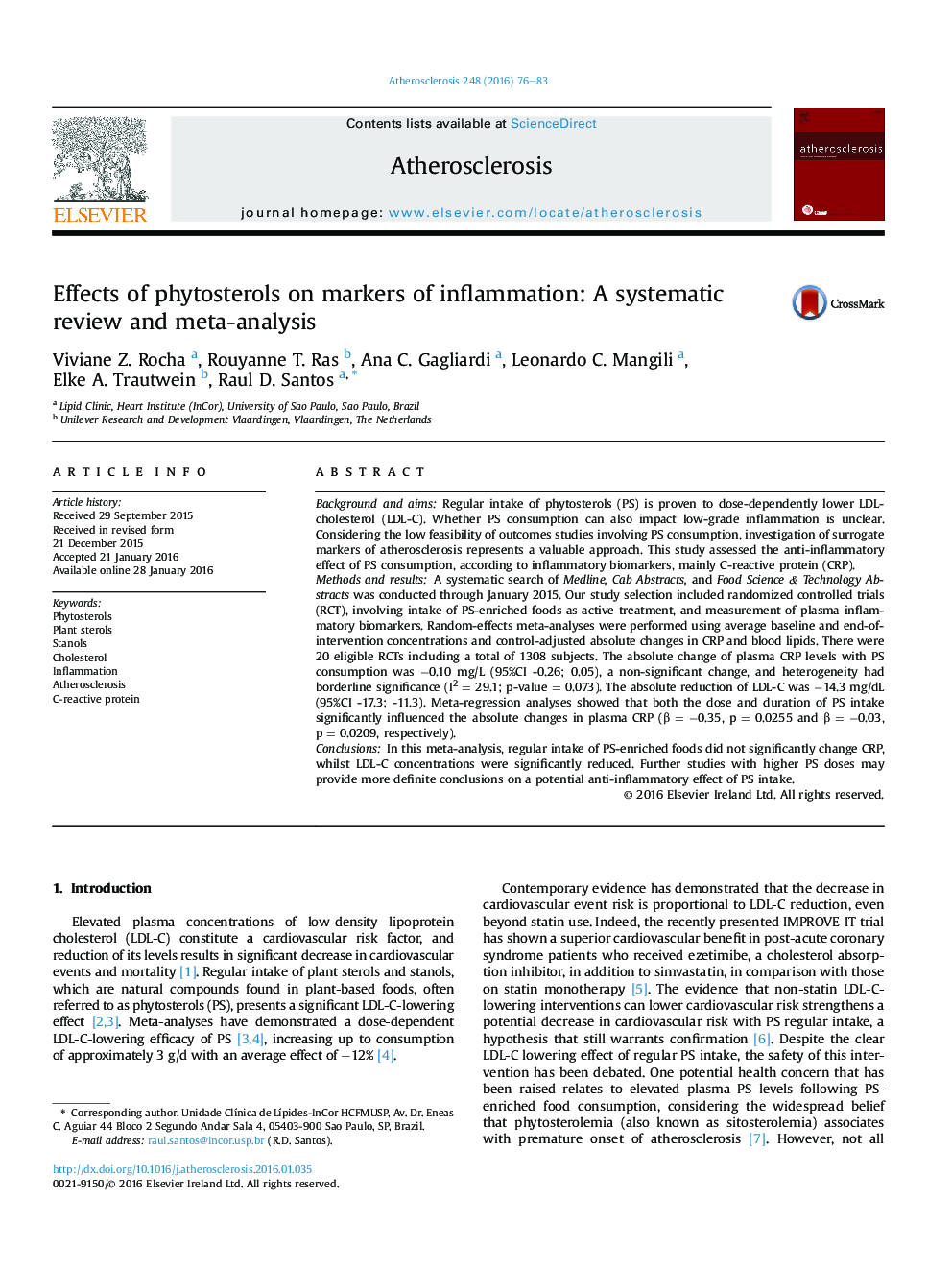| Article ID | Journal | Published Year | Pages | File Type |
|---|---|---|---|---|
| 5943267 | Atherosclerosis | 2016 | 8 Pages |
â¢Regular intake of phytosterols (PS) lowers LDL-C plasma levels.â¢The effect of PS consumption on low-grade inflammation is unclear.â¢In this meta-analysis, PS intake did not change CRP, despite LDL-C reduction.â¢The dose of PS intake influenced the absolute changes in plasma CRP.â¢Regular doses of PS intake do not seem to change low-grade inflammation.
Background and aimsRegular intake of phytosterols (PS) is proven to dose-dependently lower LDL-cholesterol (LDL-C). Whether PS consumption can also impact low-grade inflammation is unclear. Considering the low feasibility of outcomes studies involving PS consumption, investigation of surrogate markers of atherosclerosis represents a valuable approach. This study assessed the anti-inflammatory effect of PS consumption, according to inflammatory biomarkers, mainly C-reactive protein (CRP).Methods and resultsA systematic search of Medline, Cab Abstracts, and Food Science & Technology Abstracts was conducted through January 2015. Our study selection included randomized controlled trials (RCT), involving intake of PS-enriched foods as active treatment, and measurement of plasma inflammatory biomarkers. Random-effects meta-analyses were performed using average baseline and end-of-intervention concentrations and control-adjusted absolute changes in CRP and blood lipids. There were 20 eligible RCTs including a total of 1308 subjects. The absolute change of plasma CRP levels with PS consumption was â0.10 mg/L (95%CI -0.26; 0.05), a non-significant change, and heterogeneity had borderline significance (I2 = 29.1; p-value = 0.073). The absolute reduction of LDL-C was â14.3 mg/dL (95%CI -17.3; -11.3). Meta-regression analyses showed that both the dose and duration of PS intake significantly influenced the absolute changes in plasma CRP (β = â0.35, p = 0.0255 and β = â0.03, p = 0.0209, respectively).ConclusionsIn this meta-analysis, regular intake of PS-enriched foods did not significantly change CRP, whilst LDL-C concentrations were significantly reduced. Further studies with higher PS doses may provide more definite conclusions on a potential anti-inflammatory effect of PS intake.
